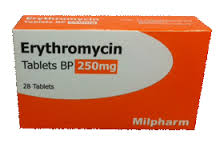Here is some information about a drug that may help with muscle contractures and seizures. My son recently had several episodes where he would lose balance and sink to the ground, not really tripping but losing strength and we suspected that he may be having myotonia contractures. What this is simply is that muscles in his legs are seizing up and not moving so that the body can not remain upright. We are looking at some of these drugs to see if they may be helpful. The one that has been mentioned most is mexiletine. There are a couple others but Dr. Moxley at the University of Rochester has studies this drug more than most. His experience with Myotonic Dystrophy is extensive.
The study did not measure outcomes. That is they studies it and saw it reduced ontraction time in patients muscles. They did not look to see if it made a difference in their everyday lives such as walking or opening cans. So no real evidence it helps outcomes, but it seems to work from the researchers standpoint.
The study here was presented at one of the IDMC meetings. Will be giving this drug a try if the doctors agree it may help and not affect any of his cardiac issues, like level 1 heart block.
Mexiletine is an effective antimyotonia treatment in myotonic dystrophy type 1
E.L. Logigian, MD,
W.B. Martens, BA,
R.T. Moxley, IV, BA,
M.P. McDermott, PhD,
N. Dilek, MS,
A.W. Wiegner, PhD,
A.T. Pearson, PhD,
C.A. Barbieri, RN,
C.L. Annis, BS,
C.A. Thornton, MD, and
R.T. Moxley, III, MD
This article has been
cited by other articles in PMC.
Abstract
Objective:
To determine if mexiletine is safe and effective in reducing myotonia in myotonic dystrophy type 1 (DM1).
Background:
Myotonia is an early, prominent symptom in DM1 and contributes to decreased dexterity, gait instability, difficulty with speech/swallowing, and muscle pain. A few preliminary trials have suggested that the antiarrhythmic drug mexiletine is useful, symptomatic treatment for nondystrophic myotonic disorders and DM1.
Methods:
We performed 2 randomized, double-blind, placebo-controlled crossover trials, each involving 20 ambulatory DM1 participants with grip or percussion myotonia on examination. The initial trial compared 150 mg of mexiletine 3 times daily to placebo, and the second trial compared 200 mg of mexiletine 3 times daily to placebo. Treatment periods were 7 weeks in duration separated by a 4- to 8-week washout period. The primary measure of myotonia was time for isometric grip force to relax from 90% to 5% of peak force after a 3-second maximum grip contraction. EKG measurements and adverse events were monitored in both trials.
Results:
There was a significant reduction in grip relaxation time with both 150 and 200 mg dosages of mexiletine. Treatment with mexiletine at either dosage was not associated with any serious adverse events, or with prolongation of the PR or QTc intervals or of QRS duration. Mild adverse events were observed with both placebo and mexiletine treatment.
Conclusions:
Mexiletine at dosages of 150 and 200 mg 3 times daily is effective, safe, and well-tolerated over 7 weeks as an antimyotonia treatment in DM1.
Continue reading →




